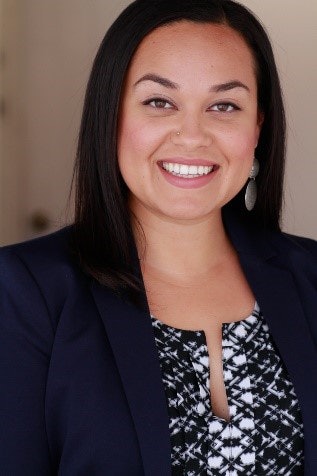My first memories revolved around looking at my grandmother’s hands. They were calloused, wrinkled, arthritic. When she would cook, I’d ask, “Grandma, do your hands hurt?” She always would reply, “No, princess, they are fine.”
Who was my grandmother? Blandina Margarita Govea Tuero was a Mexican-American WWII Veteran, a master cook and baker and a single mother of nine. She lived in poverty and did not complain. Having only a ninth-grade education, she would say to me, “No one can take away your knowledge. Get your education.”
 Dr. Nichole Margarita Garcia
Dr. Nichole Margarita GarciaLike many other Mexican-Americans, my grandmother saw education as the great equalizer. In fact, of her nine children, five graduated with a bachelor’s degree. Three of those five attained a master’s degree.
However, her 18 grandchildren have fared differently. Only two have attained a bachelor’s degree. I am one of those two, and the only one to pursue graduate school. Unfortunately, she passed away a year before I graduated. Before she died, I promised her that I would attain a Ph.D. and become a faculty member.
I never knew how hard it would be to fulfill that promise.
People may say to me, a Chicana/Puerto Rican Ph.D., “You did it, so everyone else can.” I am the exception to the rule. Less than 1 percent of Chicana and Puerto Rican women attain a PhD. As of 2015, the National Center for Education Statistics reported that two percent of Hispanic men and women combined are full-time faculty, regardless of rank. By contrast, white men and women are at 77 percent. More startling, Hispanic women make up 1 percent or less of full-time professors in the U.S.
Throughout my academic career, I have experienced imposter syndrome, a phenomenon that occurs when an individuals internalize the belief that they do not belong despite having the qualifications and success. One way I have found to combat imposter syndrome is to tell the stories that have come before me, stories that have not had a platform to be shared.
Recently, as I researched literature for a few projects, I found a gem. The project was titled, Saving the Legacy: An Oral History of Utah’s World War II Veterans, in which I found an interview with my grandmother. I was unaware she had participated in the project. I took a moment to cry, opened the document and her untold story began.
As I read the interview, I could hear my grandmother’s voice. I realized I have privilege in that I was able to locate such a rare document. It came at a critical time, as I am in the job market to secure my first tenure-track position. While it is unclear whether I will achieve that, my grandmother left her words as a reminder of why I do what I do. When she was asked, “How did you feel about your WWII service?” she replied: “I never regretted it. I’ve always thought that if I could do it over again, I’d do it.”
I am Nichole Margarita Garcia, the Ph.D. my grandmother never knew. I carry my grandmother’s middle name. I publish with my whole name, as my Ph.D. is hers, as well. My legacy is my presence in the ivory tower, and if I had to do it over again, I’d do it! I am reminded that while our numbers are low in graduate degree completion and pursuing faculty positions as a profession, nevertheless, I am here.
My grandmother taught me to value and hold pride in my identity as a Mexican-American woman, even when individuals, institutions or policies may not. We must own our histories, take them in our hands and create change by documenting them.
Nichole Margarita Garcia is a postdoctoral research fellow at the University of Pennsylvania’s Graduate School of Education.





















